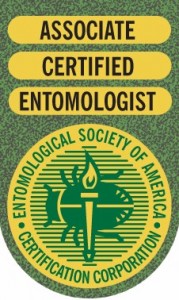Have you ever thought about how termites stay healthy? While most of us believe the soil in which we walk on, plant food and build our homes upon is clean and disease free it is actually filled with immeasurable amounts of bacteria and fungus spores. These organisms do best in moist soils and are most abundant around plant roots which coincidently are the perfect conditions for termites as well. One bacterium is capable of producing 16 million more in a single day in these ripe conditions by a process called binary fission (splitting in two). Of course not all these spores are bad and most are needed to play their part as recyclers breaking down rotting vegetation and other organic materials. But many are deadly to termites and even though they handle, ingest and are in constant contact with these life ending organisms they are never affected.
The secret behind this disease free living for the termites seems to be in their body secretions. Termite saliva and fecal matter have the life saving ingredient which is known as gram-negative bacteria binding proteins (GNBPs) and it is this that destroys the bad bacteria and fungus. We’ve known for a long time that termites use their mouthparts to move 1000’s of soil particles every day and cement their shelter tubes and nest infrastructure with their fecal matter; they even feed and communicate with each other via trophalaxis (exchanging liquids by mouth) so this defense couldn’t be at a better spot. The constant contact with bad bacteria is negated by their secretions which contain GNBPs.
This ability hasn’t gone unnoticed by some really smart people and now researchers at Northeastern University have figured out how to negate the termites GNBPs. Rebeca Rosengaus, an associate professor of biology at Northeastern, along with former Northeastern postdoctoral fellow Mark Bulmer and a team of MIT researchers, have discovered an environmentally friendly method of pest control using a naturally occurring food additive. GDL or glucono delta-lactone is a sugar analogue which inhibits GNBPs and the fungus/bacteria that was once harmless now kills the exposed termites within a few days.
Although they far away from a perfected product, GDL is more than promising in that it is an inexpensive molecule that is biodegradable and they hope that it can replace the need for residual insecticides that stay in the soil for years. The delivery method for the GDL wasn’t discussed in the research as of yet but my guess is pest control professionals will need to find active termites and either inject it into the soil or apply it directly to the termites. Since it isn’t a residual and it’s not clear if it will kill the entire colony or just those exposed it may be a bit of a hard sell to the pest control industry. One benefit of residual insecticides is that it is already there in the path of the termite ready to stop them before they damage your home.
Since this battle between termites and mankind has been raging from the beginning of wood built homes I’m sure a counter move from the termite will be forthcoming. In recent years we’ve made huge strides against this 30 billion dollar a year pest but the termite has been at this for 350 million years and I don’t think he’ll be giving up anytime soon.




